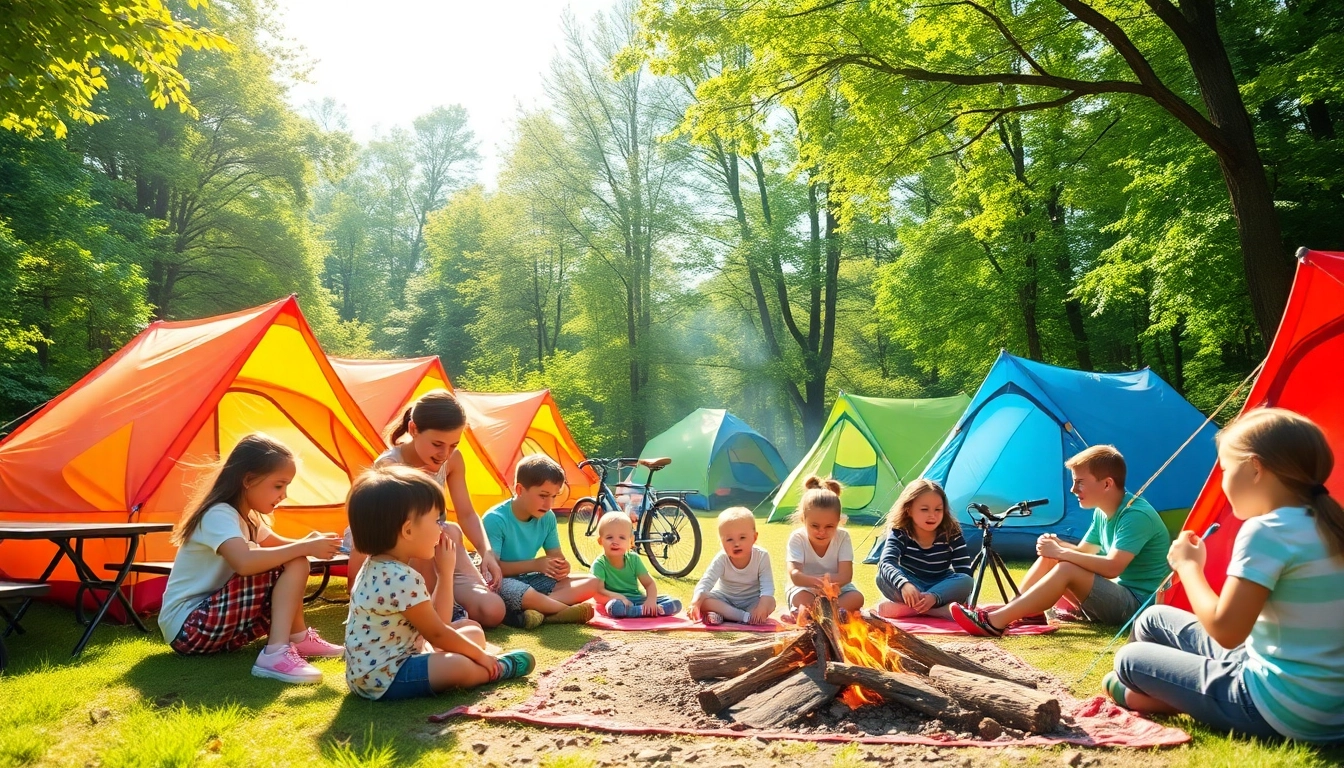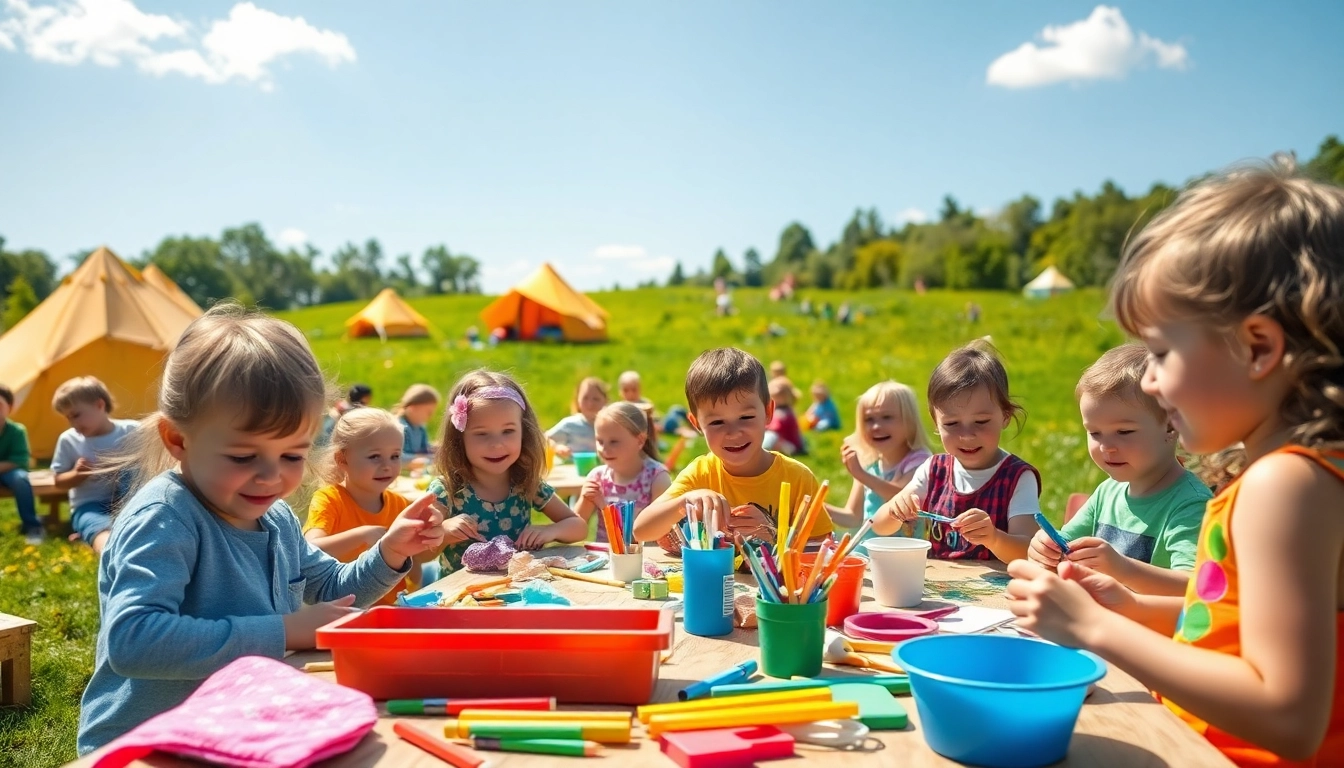Understanding Holiday Camps: What to Expect
Holiday camps have become a popular choice for families seeking a fun and engaging way to spend their vacation. Not only do they provide a change of scenery, but they also offer a range of activities designed to entertain and educate children. A well-organized holiday camp can provide access to experiences that promote growth, skill development, and family bonding. In this guide, we will explore the many facets of holiday camps, covering their definitions, history, types, key features, and what you can expect when you participate in one.
Definitions and History of Holiday Camps
In essence, a holiday camp is a type of vacation accommodation primarily designed to keep guests entertained while they are away from home. Originating in the United Kingdom during the mid-20th century, holiday camps were initially seen as a way for families to have access to affordable vacations that still provided plenty of activities.
These camps often feature a range of accommodations, from basic lodgings to more luxurious offerings, depending on the camp’s purpose and target audience. The early camps emphasized community and social interaction, encouraging guests to bond with one another through shared activities and experiences.
Types of Holiday Camps Available
Today, holiday camps can be classified into several categories, each catering to different interests and age groups. These include:
- Traditional Holiday Camps: These camps offer a range of activities, including sports, arts and crafts, and recreational games. They are often situated in scenic locations, providing a beautiful backdrop for activities.
- Sports Camps: Focused primarily on physical activities, sports camps provide specialized training in various sports, from soccer to swimming. They often feature coaches with expertise in their respective fields.
- Outdoor Adventure Camps: For families interested in nature, these camps prioritize outdoor exploration. Activities may include hiking, canoeing, rock climbing, and wildlife education.
- Educational Camps: Combining fun with learning, these camps may focus on subjects such as science, technology, or the arts. They provide enriching experiences that go beyond the typical camp setting.
- Theme Camps: These camps revolve around specific themes, which can range from a focus on the environment to specific cultural experiences, like cooking or music camps.
Key Features and Amenities to Look For
When considering a holiday camp, it’s essential to look into specific features and amenities that can enhance your overall experience. Key things to consider include:
- Accommodation Options: Assess the quality and types of rooms available to ensure they match your family’s preferences and comfort level.
- Safety Measures: Always prioritize camps that demonstrate a strong commitment to health and safety standards, especially when it comes to children.
- Range of Activities: Look for camps that offer a diverse schedule of activities to prevent boredom and cater to different interests.
- Food and Nutrition: Understanding the meal options and whether they can accommodate dietary restrictions is crucial for families.
- Staff Qualifications: Evaluate the expertise and qualifications of staff who will be leading activities, ensuring that they are trained and experienced.
Choosing the Right Holiday Camp for Your Family
Selecting the right holiday camp can be a daunting task, given the vast array of options available today. However, focusing on key factors and personal preferences can help narrow down your choices and ensure a fulfilling experience for your family.
Factors Influencing Your Decision
When it comes to choosing the perfect holiday camp, consider the following factors:
- Location: The proximity to your home or access to nature can greatly influence your choice. Camps located near water bodies or beautiful landscapes offer exciting environmental engagement.
- Budget: Ensure that the camp fits within your budget while not compromising on the quality of experiences provided.
- Your Child’s Interests: Evaluate what activities your child enjoys most to ensure that the chosen camp will cater to their preferences.
- Schedule: Consider the camp’s dates against your family’s availability. Seasonal camps can have less flexible schedules.
Reading Reviews and Testimonials
Before making a decision, it’s prudent to read reviews and testimonials from families who have previously attended the camps you are considering. Online forums and review websites can provide valuable insights into the experiences of other families.
Pay attention to recurring themes in reviews, such as camp infrastructure quality, staff friendliness, safety measures, and the variety of activities offered. This information can play a crucial role in helping you gauge whether a particular camp meets your expectations.
Different Age Groups and Camp Activities
It’s essential to consider the age appropriateness of activities offered. Many camps cater to specific age groups, ensuring that the activities are developmentally suitable. For instance:
- Young Children (Ages 4-7): Activities often focus on simple games, storytelling, and exploratory play.
- Middle Childhood (Ages 8-12): The experience may involve a mix of adventurous activities and skill-building such as sports or arts.
- Teens (Ages 13-17): At this age, camps often ramp up to include more independent activities, leadership development, and peer-driven projects.
Planning Your Stay at Holiday Camps
Effective planning can significantly enhance your holiday camp experience. Not only does it prepare your family for a smooth transition into camp life, but it also maximizes the fun and camaraderie present in these unique settings.
What to Pack for Holiday Camps
Packing appropriately can make all the difference. Consider the following items when preparing for your camp stay:
- Clothing: Pack clothes suitable for various activities and weather conditions. Layering is key, especially in changeable climates.
- Footwear: Comfortable shoes are a must. Depending on activities, consider hiking boots or waterproof shoes.
- Personal Items: Ensure you bring essential toiletries and any medications needed. Some camps may have restrictions, so verify what’s allowed.
- Outdoor Gear: If your camp includes outdoor activities, items like hats, sunglasses, and insect repellent may prove useful.
How to Prepare Your Children for Camp Activities
Before heading to camp, it’s important to prepare your children for the experiences they will have:
- Introduce the Concept: Talk to your kids about what to expect at camp, discussing the types of activities they will participate in and the people they will meet.
- Set Expectations: Encourage them to be open to new experiences and to make the most of their time away.
- Foster Independence: Allow them to pack their own bags, which builds excitement and independence. Ensure that they feel confident managing their belongings.
Managing Expectations: Integration and Adjustment
Transitioning to a holiday camp environment can be both exciting and challenging for children. As a parent, assist them in managing their expectations:
- Discuss Potential Emotions: Help your child understand that it’s normal to feel homesick or nervous. Share coping strategies, like connecting with camp buddies.
- Encourage Communication: Depending on the camp’s policies, find out if kids can communicate with their family during their stay and set up a communication plan.
Activities and Adventures Awaiting at Holiday Camps
One of the primary reasons families opt for holiday camps is the diverse array of activities available, spanning various interests and age groups. Here’s a glimpse at some typical offerings found at holiday camps.
Typical Activities Offered: Fun for All Ages
Activities at holiday camps can range widely, but some common options include:
- Arts and Crafts: Kids can express their creativity through painting, sculpture, or various artistic projects.
- Sports and Games: From team sports to individual challenges, these activities promote fitness and teamwork.
- Nature Exploration: Many camps incorporate nature walks, scavenger hunts, and wildlife education into their programs.
- Nighttime Activities: Evening storytelling, bonfires, and campfire songs can foster camaraderie among campers.
The Importance of Outdoor Exploration
Outdoor activities play a pivotal role in children’s development. Engaging with nature not only enhances physical fitness but also allows campers to develop essential life skills:
- Problem-Solving Abilities: Navigating trails and tackling outdoor challenges can enhance cognitive skills.
- Teamwork and Communication: Many outdoor activities require collaboration, fostering bonds and communication skills.
- Connection to Nature: Spending time in natural environments encourages a sense of responsibility toward the environment.
Creating Family Bonds Through Group Activities
Many camps provide activities designed to enhance family engagement, encouraging family units to participate in shared experiences. These activities can include:
- Family Workshops: Engaging in activities such as cooking, art projects, or obstacle courses can make for lasting shared memories.
- Group Games: Competitive games can foster teamwork and collaboration while reinforcing relationships among family members.
Being actively involved in these group activities can strengthen family bonds and create lasting memories from these collective experiences.
Maximizing Your Holiday Camp Experience
To truly make the most of your holiday camp experience, there are several strategies that families can adopt. From participating in as many activities as possible to staying engaged with staff and other families, these tips will enhance your overall experience.
Tips for Making the Most of Holiday Camps
Here are some actionable tips to ensure a fulfilling holiday camp experience:
- Embrace New Experiences: Encourage your family to try new activities beyond their comfort zone, broadening their horizons and access to new interests.
- Stay Connected: Network with other families and staff, as building connections can enhance the social experience and provide support.
- Participate Actively: Join in on family events, showcasing your willingness to engage with the camp environment.
Getting Involved: Volunteer Opportunities and Feedback
Many camps offer volunteer opportunities for parents and even older children. Contributing your time can deepen your camp experience and help create a positive environment for all. After camp, providing feedback allows camp organizers to improve their offerings for future participants.
Sharing Your Experiences: Post-Camp Reflections
After your camp adventure, gather as a family to reflect on the experiences had and lessons learned. Sharing experiences solidifies memories and provides an opportunity to discuss what worked well, what didn’t, and what you might want to try next time.
In conclusion, holiday camps present an extraordinary opportunity for families to bond while participating in diverse activities that foster growth, learning, and adventure. By understanding what to expect, how to choose the right camp, and how to maximize your experience, you can create lasting memories that your family will cherish for years to come.















Leave a Reply